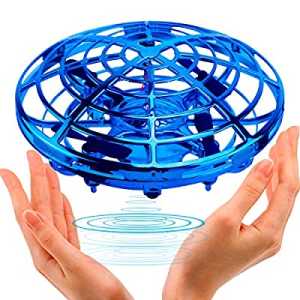
The Role Of A Pediatrician In Your Child’s Health

A pediatrician is more than just a doctor for your child. They are trusted healthcare professionals dedicated to ensuring your child’s overall well-being from infancy to adolescence. Pediatricians play a vital role in addressing not only physical health but also emotional, social, and developmental needs. By establishing a long-term relationship with a pediatrician, parents can ensure that their children receive comprehensive care during the most formative years of their lives.
Who Is a Pediatrician?
A pediatrician specializes in the branch of medicine that deals with children’s health, called pediatrics. They are trained to understand the unique health challenges children face, which differ significantly from those of adults. Pediatricians undergo extensive training that equips them to deal with the complexities of growth, development, and childhood illnesses.
Key Roles and Responsibilities of a Pediatrician
Pediatricians provide a wide range of medical services that cater to children’s diverse health needs. Below are some of the critical roles they play:
1. Preventive Care
Pediatricians focus heavily on prevention, aiming to stop potential health issues before they arise. Key preventive care services include:
- Administering vaccinations to protect against diseases.
- Conducting regular health check-ups to monitor growth and development.
- Offering advice on proper nutrition, sleep, and physical activity.
Preventive care also involves educating parents on safety measures, such as childproofing the home and recognizing early warning signs of illnesses.
2. Diagnosing and Treating Illnesses
Children frequently encounter health issues, ranging from minor infections to more serious conditions. Pediatricians are skilled at diagnosing and treating a variety of illnesses, such as:
- Respiratory infections like colds and flu.
- Skin conditions like rashes and eczema.
- Digestive issues, including colic or food allergies.
In cases requiring specialized treatment, pediatricians work closely with other specialists to ensure the best outcomes for the child.
3. Managing Chronic Conditions
For children with chronic conditions, such as asthma, diabetes, or congenital heart diseases, pediatricians provide consistent and tailored care. They develop personalized management plans, monitor progress, and adjust treatments as necessary.
4. Monitoring Developmental Milestones
Pediatricians are instrumental in tracking a child’s physical, emotional, and cognitive development. They ensure that children are reaching milestones like crawling, walking, and speaking at appropriate ages. If developmental delays are detected, pediatricians recommend early interventions that can significantly improve outcomes.
5. Addressing Behavioral and Emotional Health
Children’s mental health is just as important as their physical well-being. Pediatricians help parents navigate challenges like anxiety, ADHD, or mood disorders. By identifying these issues early, they ensure that children receive timely support and care.
6. Guiding Parents
Pediatricians serve as a valuable resource for parents, offering guidance on everyday challenges such as:
- Managing picky eating habits.
- Establishing healthy sleep routines.
- Addressing discipline and behavioral concerns.
By fostering open communication, pediatricians build trust with families and empower parents to make informed decisions.
Why Is a Pediatrician Essential for Your Child’s Health?
A pediatrician’s comprehensive approach to healthcare ensures that all aspects of a child’s well-being are addressed. Here are some reasons why pediatricians are indispensable:
- Continuity of Care: Pediatricians oversee a child’s health journey from infancy to adolescence, creating a consistent and thorough medical history.
- Specialized Knowledge: Their expertise in child-specific health concerns ensures accurate diagnosis and treatment.
- Trust and Familiarity: A long-term relationship with a pediatrician helps children feel more comfortable during medical visits, reducing anxiety.
- Early Detection: Regular visits enable pediatricians to identify and address health issues before they become severe.
- Worried about your child's health in Seawoods? Cura Clinic, a trusted Children Care Hospital in Seawoods, is here to help. If you’re concerned about any symptoms, our specialists are ready to guide you with expert care.
When Should You Visit a Pediatrician?
While routine check-ups are essential, certain situations call for immediate visits to a pediatrician, including:
- High fever or persistent illnesses.
- Unexplained changes in behavior or mood.
- Signs of developmental delays.
- Injuries or accidents requiring medical attention.
Pediatricians are also the first point of contact for managing chronic conditions or seeking referrals to specialists.
Conclusion
The role of a pediatrician extends far beyond treating illnesses. They are guardians of your child’s health, guiding families through the various stages of growth and development. By focusing on prevention, early detection, and holistic care, pediatricians contribute significantly to a child’s physical, mental, and emotional well-being.
Choosing the right pediatrician is an important decision for any parent. Building a strong partnership with a trusted pediatrician ensures that your child receives the best possible care, setting them up for a healthy and fulfilling life.
Author Bio
Article Comments
No Comments!
At present there are zero comments on this article.
Why not be the first to make a comment?
Similar Articles
Search Pages
Upgrade User Account
account to full use of editor,
including hyperlinks
Article Categories
There are zero sub-categories in this parent category.
There are zero sub-categories in this parent category.











